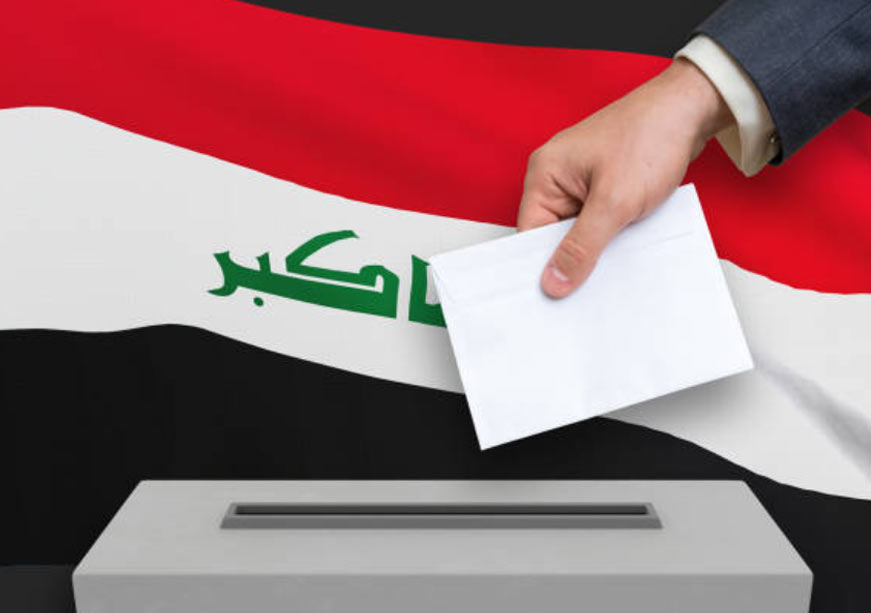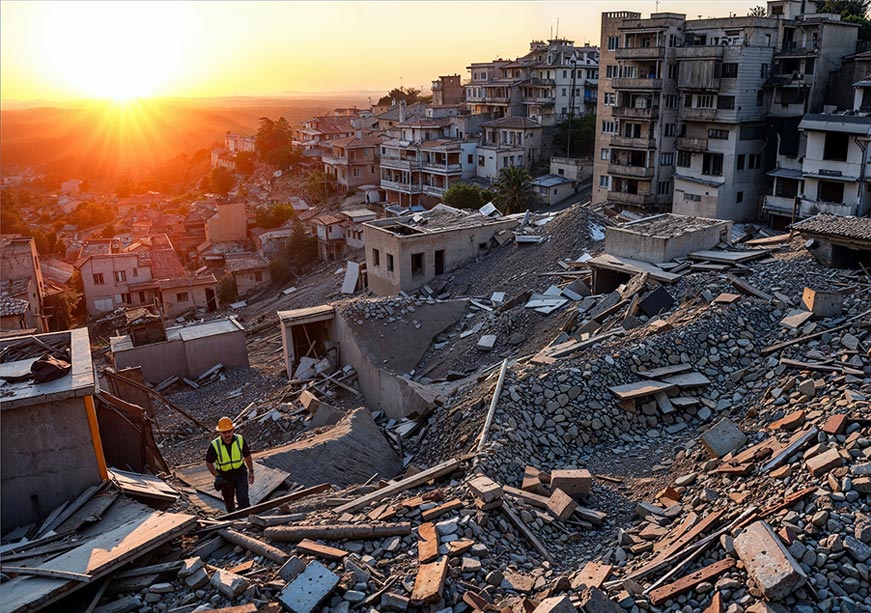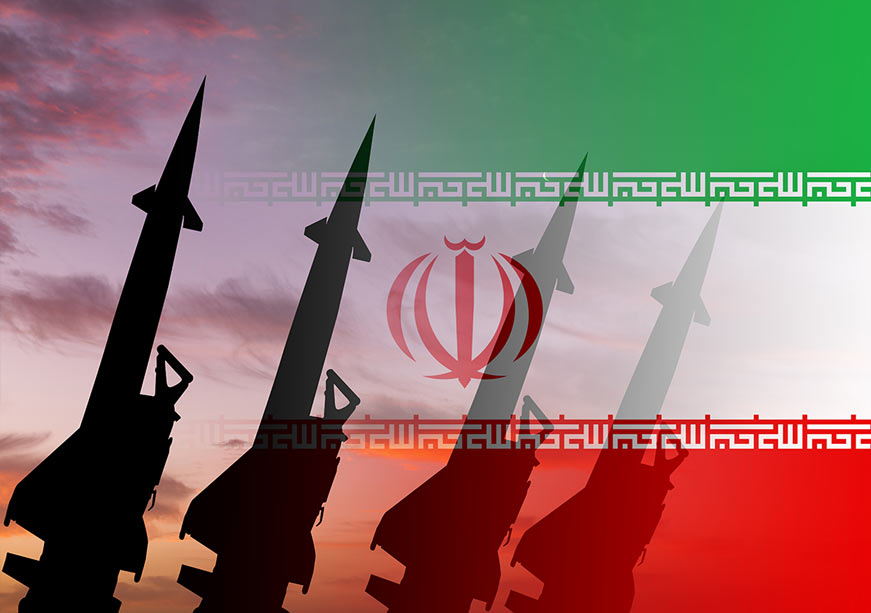As Iraq heads to elections, voters face a choice: preserve the oil-dependent status quo, risk radical reforms, or embrace populist uncertainty.
As Iraq enters the final weeks before its pivotal national elections on 11 November 2025, the central question it faces is not just political but also economic. Voting for the seventh time since the United States (US)-led invasion in 2003, Iraqis are set to choose a new 329-seat Council of Representatives from a landscape of 37 alliances, 38 parties, and nearly 80 independent candidates.
The vote could become a referendum on an economic model that juxtaposes substantial oil wealth with persistent governance and service-delivery challenges. The core issue remains a well-documented reliance on oil, which accounts for nearly 90 percent of state revenue and has fostered a political economy more centred on distribution than diversification. With ministries directing three-quarters of the economy, the majority of the non-state, non-oil economy is informal and cash-based. These hydrocarbon receipts finance a large public sector that employs about 4.5 million Iraqis, shaping labour-market incentives and the state’s fiscal profile. The associated wage bill absorbs a substantial share of the budget, constraining capital outlays needed to address infrastructure gaps as reflected by recurring electricity outages and acute water crises. Moreover, Iraq’s population is young, yet many entrants to the labour force face limited opportunities. The World Bank reported that 15.5 percent of the total labour force was unemployed in 2024. The unemployment rate has been rising over the past decade, as seen in Figure 1.

The ballots cast in the coming weeks will be a verdict on a system whose accumulated policy and institutional constraints have brought the country to an inflexion point. What is at stake in this election, therefore, is not simply the composition of a cabinet but the trajectory of the political economy: a choice between incremental continuity and a more ambitious reform path.
Parties on the Ballot Box
As the Iraqi electorate prepares to deliver its verdict, the contest has crystallised into a three-way struggle between fundamentally different politico-economic paradigms. The choice is not between individual parties, but between three distinct futures: the managed decay of the status quo, the high-risk gamble of radical reform or the volatile uncertainty of populist disruption. While it is unlikely that any single party will form the government, most ruling coalitions can be envisaged with these three broad pathways.
The dominant force remains the Iran-backed Coordination Framework, a coalition of established Shia Islamist parties that are the primary architects and beneficiaries of the post-2003 order. The Coordination Framework has fractured into five blocs ahead of November, pledging to contest separately but reunite after the elections. They are less a political coalition and more the custodians of the system itself. Their power is deeply fused with the state apparatus, reinforced by their control over key ministries and the loyalty of powerful armed factions that function as a parallel security structure. Therefore, their economic vision is one of systemic preservation and centralised control. Despite their promises, it is unlikely they will dismantle the oil-dependent rentier state. Instead, they will manage it as the indispensable engine of political power. This is achieved through the ethno-sectarian power-sharing system known as muhasasa, under which the public sector has been used as a tool for political patronage and social control. Their development model favours state-led contracts, often with geo-economic partners who are less encumbered by the transparency requirements of Western institutions. A victory for the incumbent bloc would thus usher in a future of predictable stagnation. This promises a degree of near-term stability that may reassure international energy investors as the system itself would not immediately collapse, even as governance pathologies persist. Polling by reputable surveys indicates persistent support for established parties: In 2025, 55 percent of Iraqi respondents expressed confidence in the government, although publicly available polling does not clearly indicate voting intentions based on employment status. Next are the Reformist Independents representing the post-sectarian political class born from the embers of the 2019 Tishreen protest movement. This diverse coalition of technocrats, academics, and youth activists is the ghost of those protests, now incarnated as a political force. Their vision is of structural reform and global integration. In the Iraqi context, their proposals emphasise reforming the inefficient public sector, reducing corruption, changing the muhasasa system and catalysing private sector–led growth. They aim to attract investments from the West and the Gulf by adhering to global transparency standards. While reformists are often sidelined from Iraqi politics because they cannot compete with the clientelism that keeps larger parties afloat, the history of Iraqi elections and the strength of the 2019 movement have taught them not to underestimate the power of collective resolve. Therefore, reformists represent the highest risk for the highest reward. They are perceived as an existential threat by the entrenched elites, making fierce resistance from armed factions a high probability. Any implementation of painful fiscal and administrative adjustments could trigger social unrest without strong safety nets. Their success would be contingent on rapid international financial and security backing. Without these, capacity constraints and coercive pushback could stall reforms. A vote for the Reformists is, therefore, the ultimate gamble: a choice between potential national economic renewal and the risk of institutional paralysis.
Another important force is the Nationalist Bloc, which largely coalesces around the immense populist appeal of figures such as Muqtada al-Sadr. In Iraq’s October 2021 election, the Shia Islamist Sadrist movement won 73 of the 329 parliamentary seats. However, after eight months of deadlock with the rival Shia Coordination Framework over the formation of a new government, al-Sadr withdrew from the process and ordered his parliamentarians to resign. Despite months of re-engagement signals ahead of the 2025 elections, al-Sadr has now stated he will boycott Iraq’s politics. Al-Sadr is known for his strategic unpredictability. It is crucial to consider the impact of a Sadrist win on the Iraqi economy as he continues to send mixed signals. After several Sadrist figures registered as candidates, he expelled them and then told supporters not to harass those individuals. He also urged his base to update their voter IDs even in the event of a boycott of the election. Given his capacity to mobilise voters and disrupt coalitions, it is essential to assess the implications of a late Sadrist pivot. Importantly, their power base is not within the state bureaucracy, but in the impoverished centres. They derive their authority from a potent combination of religious legitimacy and fiery Iraqi nationalism. Their economic vision centres around a promised economic exorcismù, a radical, top-down anti-corruption campaign aimed at dismantling the patronage networks of the incumbent elite and rivals. This approach is deeply sceptical of foreign influence, viewing international engagement as a potential vehicle for external control. A shock victory for the Nationalists, much like in 2021, might unleash a period of high-stakes volatility. Their assault on the entrenched elite would likely trigger fierce resistance from rival networks, raising risks of capital flight and a pause in new foreign investment amid elevated uncertainty. The outcome of such a victory is profoundly binary: it is a gamble that could either break the back of systemic corruption or shatter institutional functionality through uncontrolled confrontation.
The Kingmakers
The ethno-regional blocs of the Kurdish and Sunni parties enter the electoral contest not as ideological contenders for the national economic model, but as transactional kingmakers. These blocs together held approximately a third of all seats in Iraq’s previous parliament, so they have the power to influence the final verdict of the election. Their economic agenda is pragmatic and laser-focused on securing regional interests. For instance, the major Kurdish parties are primarily concerned with negotiating a stable, long-term agreement on their share of the federal budget and codifying the Kurdistan Regional Government’s autonomy over its energy resources. Similarly, the fragmented Sunni blocs are less focused on national macroeconomic policy and more on securing reconstruction funds for provinces devastated in the war against the Islamic State of Iraq and Syria (ISIS), along with ensuring their constituents receive a proportional share of public-sector jobs and state contracts. Their role will be to leverage their parliamentary seats to extract these specific economic concessions from whichever of the larger Shia-led blocs ultimately forms the government.
Ultimately, the paradox of Iraq’s political arithmetic is that the purity of any single electoral mandate is unlikely to survive. The winning Shia-led bloc, regardless of its platform, will be compelled to barter its grand vision for the mathematically essential support of the pragmatic Kurdish and Sunni blocs. The question then metamorphoses from a verdict on the future to a reflection of the past: from which vision will win the vote to whether Iraq’s foundational power structures can permit any meaningful economic change. Only 11 November holds the answer.
Samriddhi Vij is an Associate Fellow at the Observer Research Foundation Middle East.











